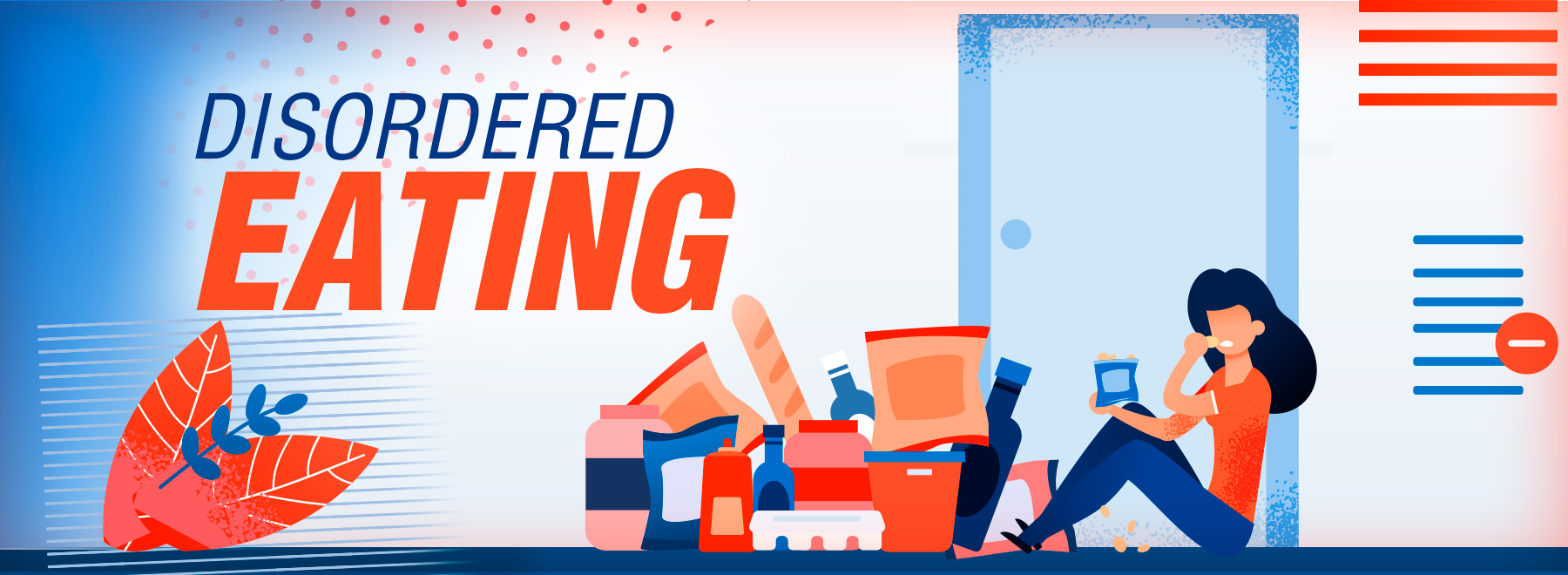How to combat the pandemic’s impact on healthy food habits
The constraints the COVID-19 pandemic is putting on access to healthy foods isn’t just an inconvenience to our taste buds or an excuse to eat more boxed macaroni and cheese.
They can pose a danger to people with eating disorders who need healthy and adequate nutrition and a way to keep fresh fruits and vegetables in their diets.

“For someone recovering from anorexia or coping with it, having access to adequate amounts of food is very important to maintaining adequate nutrition levels,” said Dr. Crystal Lim, an associate professor in the Department of Psychiatry and Human Behavior at the University of Mississippi Medical Center and a psychologist.
“That’s pretty critical.
“The same thing is true of people with binge eating disorders. We know that there are certain foods that act as triggers, and we recommend that people try to limit access to those foods. If trigger foods are all that’s available, then that can result in a setback.”
The COVID-19 pandemic poses a number of dangers to those battling eating disorders or trying to maintain their recovery. In addition to the lack of access to nutritional food, those challenges include:
- Isolation and loneliness due to quarantine or stay-at-home advisories;
- The inability to access medical providers, counselors and therapists;
- The loss of independence for college students returning home after school closures;
- The loss of support people to help keep those suffering from eating disorders accountable for their food intake;
- The scarcity of some foods, impacting children who are unusually picky eaters;
- A disruption of daily routines that help keep healthy eating on a schedule;
- Working from home, placing people in close proximity to a full refrigerator or unhealthy food choices; and
- The fear of leaving home to go shopping for necessities, including healthy foods.
Those things can throw a huge wrench into the lives of those with anorexia, bulimia, binge eating and other food-related disorders, Lim said.
“It’s a time when people could be at risk for a setback.”
“When the world feels out of control, people want to have control over something,” said Jessica Gold, a psychiatrist at Washington University in St. Louis who treats patients with eating and other mental health disorders, in a New York Times story. “Often, it’s what you put in your mouth.”
“Social isolation is definitely a problem, especially for those who are relying on others for support,” Lim said. “We’ve seen a lot of kids in our clinics with binge eating symptoms who were doing really well before the pandemic. Not being able to go to school, and changes in their routine and structure, has thrown off their eating.”
Lim said students of all ages being at home instead of at school “can impact the parent-child relationship.
“A parent’s expectation might be different than the expectations of their college-aged young adult child,” she said.
Lim encourages young adults with eating disorders who find themselves at home instead of away at college to talk to their parents about what life at home will look like.
“Setting expectations and balancing independence is important,” Lim said. “Students have time to prepare for going home for the summer, but this happened all of a sudden. Families didn’t have time to think about what expectations would look like.”
Lim suggests finding an impartial person – even a therapist or counselor – to help set ground rules and compromises for independence versus parental control. For example, talk about concerns the young adult child might have regarding their parents watching the quality and quantity of what they put in their mouths.
Parents also need to keep an eye out for younger children with feeding disorders, including “the kids who are over and above picky eaters,” Lim said.
“Their food choices are so narrow, and that has negative consequences. They can’t get the right vitamins and minerals because of their food preferences.”
“In this pandemic, if we notice that our kids are eating a very limited variety of foods, we need to try to gradually expand that to help them get adequate vitamins and minerals for brain growth and development.”
Recognize that food is a critical need, just like the need to take safety precautions during the pandemic, Lim said.
“It can be tough if you are trying to limit trips to the grocery store,” she said. “Work with friends and family to try to increase access to fruits and vegetables and incorporate them into your diet.”
She said to balance fears and concerns about the virus with the need to stay physically and mentally healthy.
“Your health depends on getting food and adequate nutrition. That’s just as important as the risk you face from the virus.”
Lim suggests those who are quarantined or self-isolating can cope by reaching out to friends and family through phone calls, Face Time or email. Obtaining social support during this time is critical.
Lastly, Lim urges those with eating disorders to continue medical treatment they are receiving from a medical provider, counselor, therapist, psychologist or psychiatrist. If an in-person visit isn’t feasible, she said there may be telehealth options or possibly phone calls available. Ask about these options.
“We don’t know how long this is going to last,” she said of the pandemic. “I recommend that people get help from professionals as soon as possible, particularly those with eating disorders that are associated with other medical complications, like anorexia, bulimia and binge eating disorder.
“People need to not be too hard on themselves. This is a difficult time to cope with an eating disorder.”
To make a new patient appointment with the Department of Psychiatry and Human Behavior at UMMC, call (601) 984-5831, option 1. Established patients can make an appointment by calling (601) 984-5831, option 2.
The above article appears in CONSULT, UMMC’s monthly e-newsletter sharing news about cutting-edge clinical and health science education advances and innovative biomedical research at the Medical Center and giving you tips and suggestions on how you and the people you love can live a healthier life. Click here and enter your email address to receive CONSULT free of charge. You may cancel at any time.



